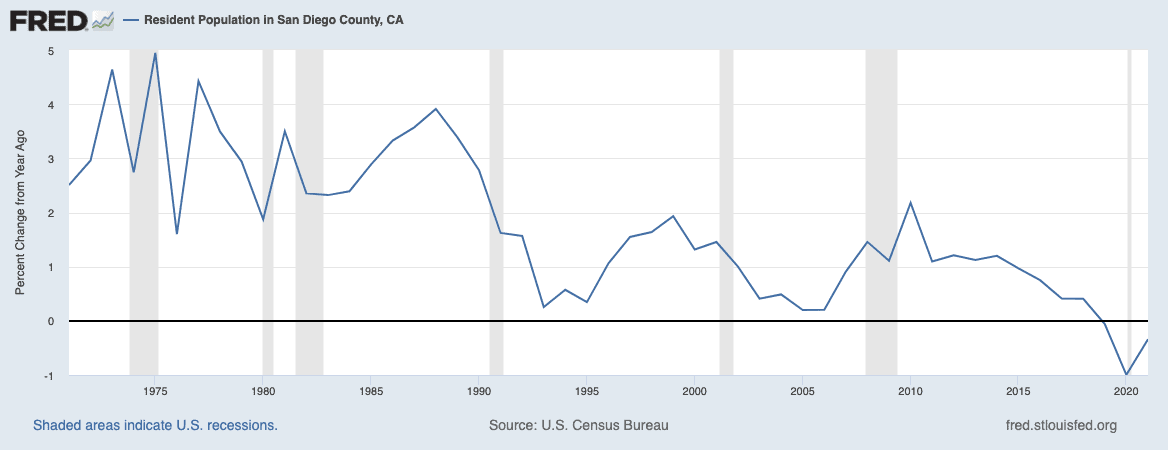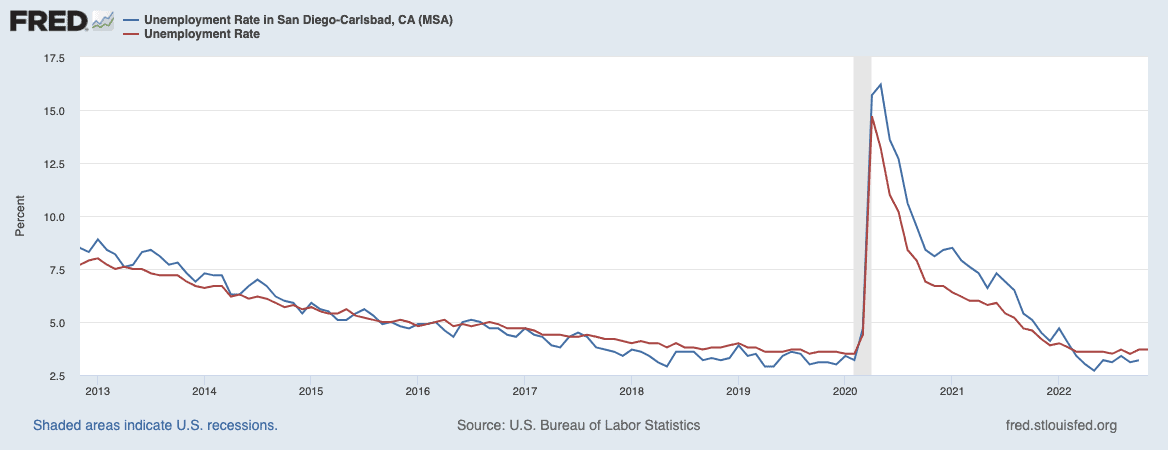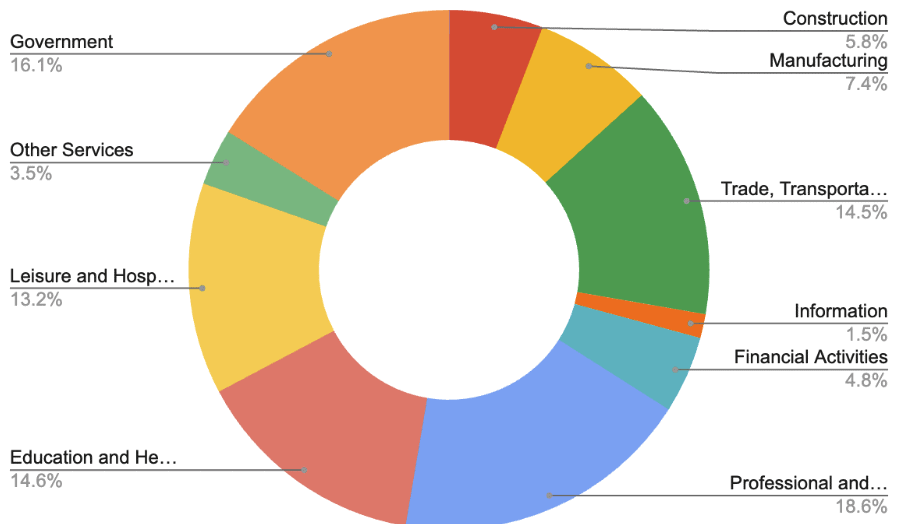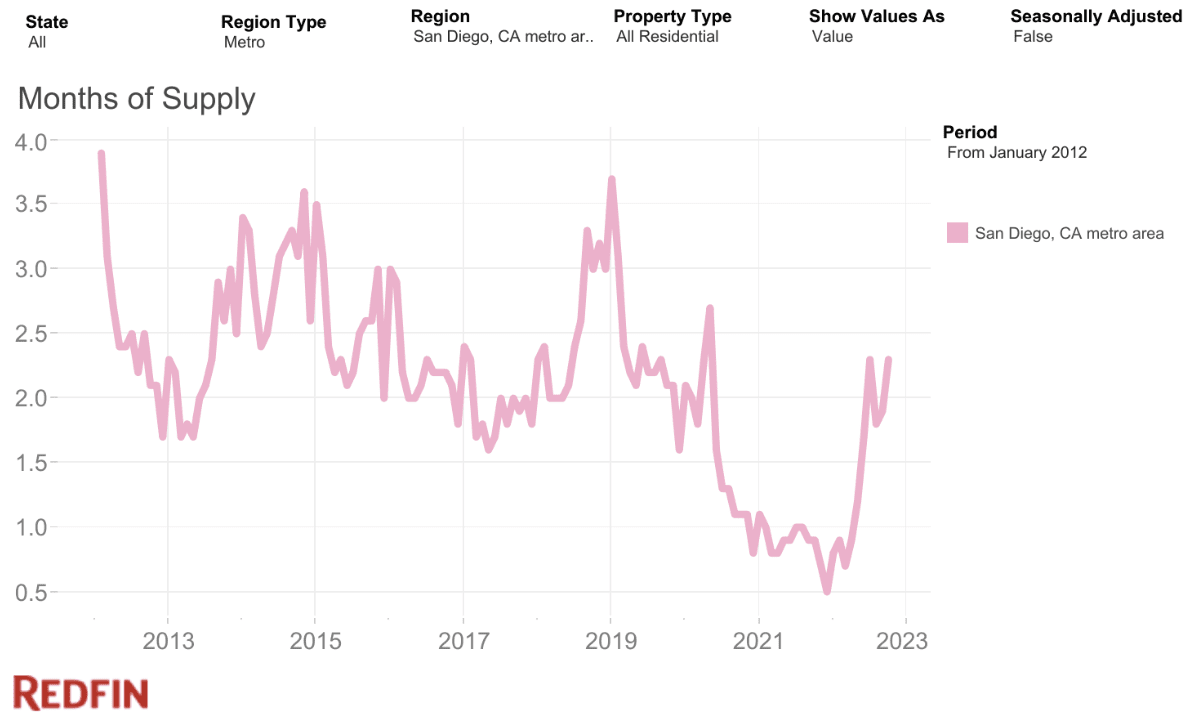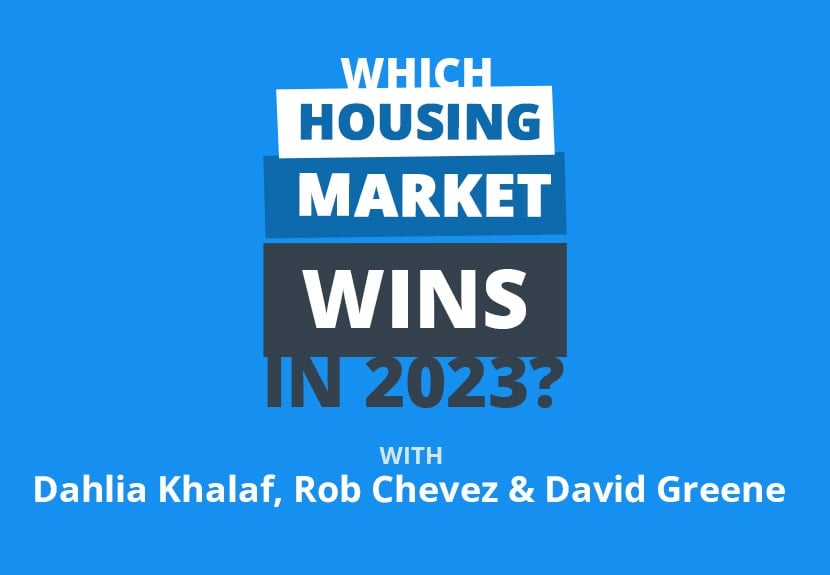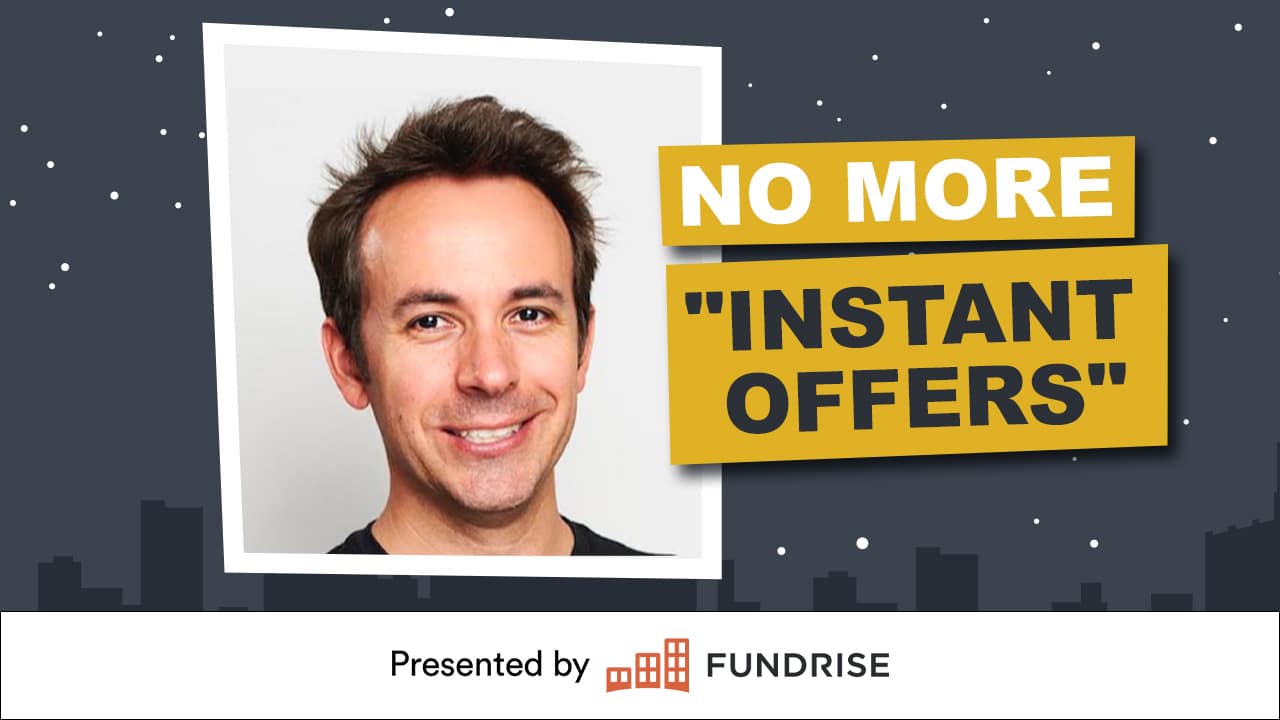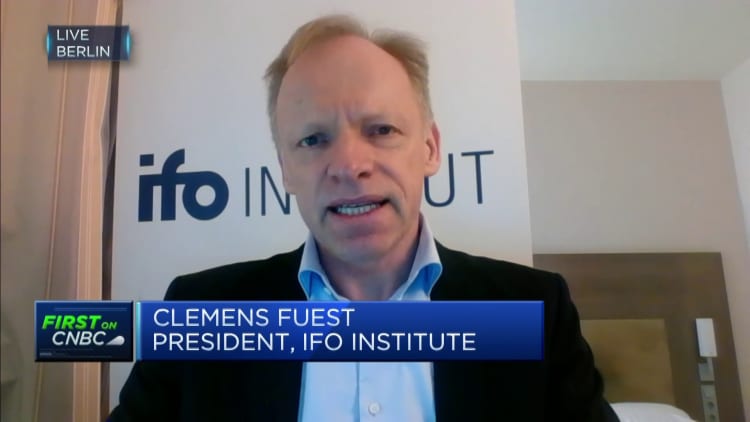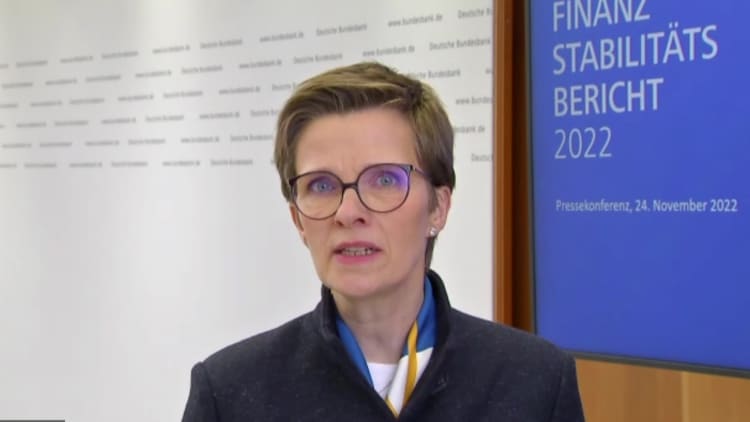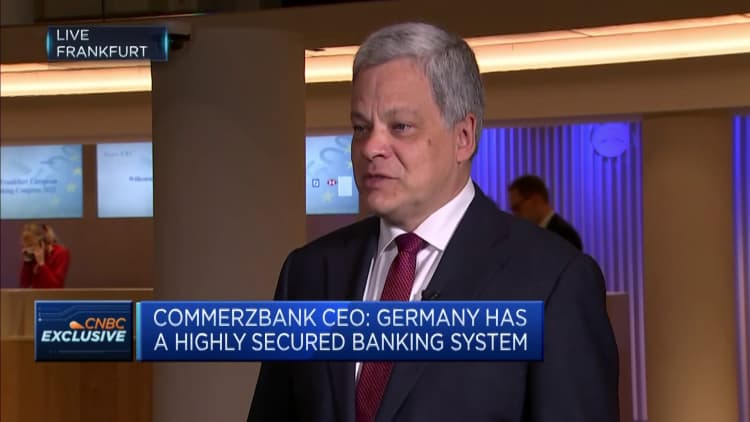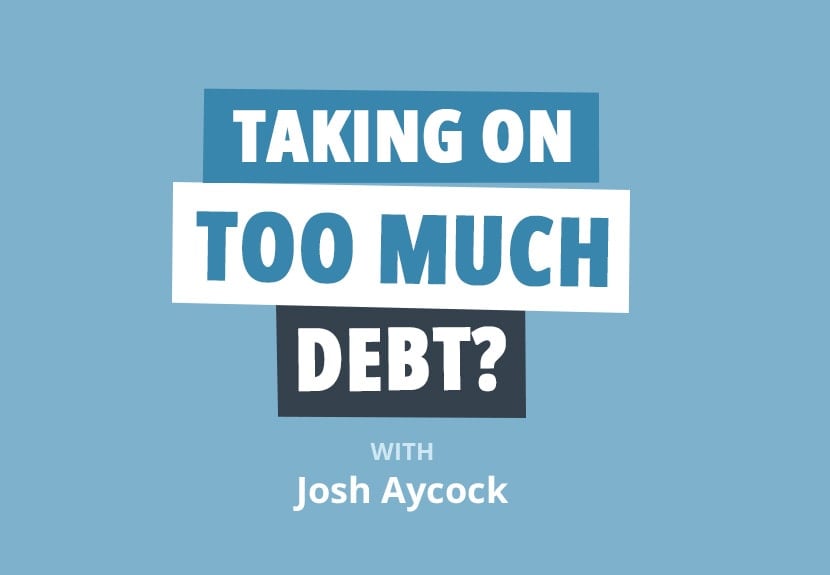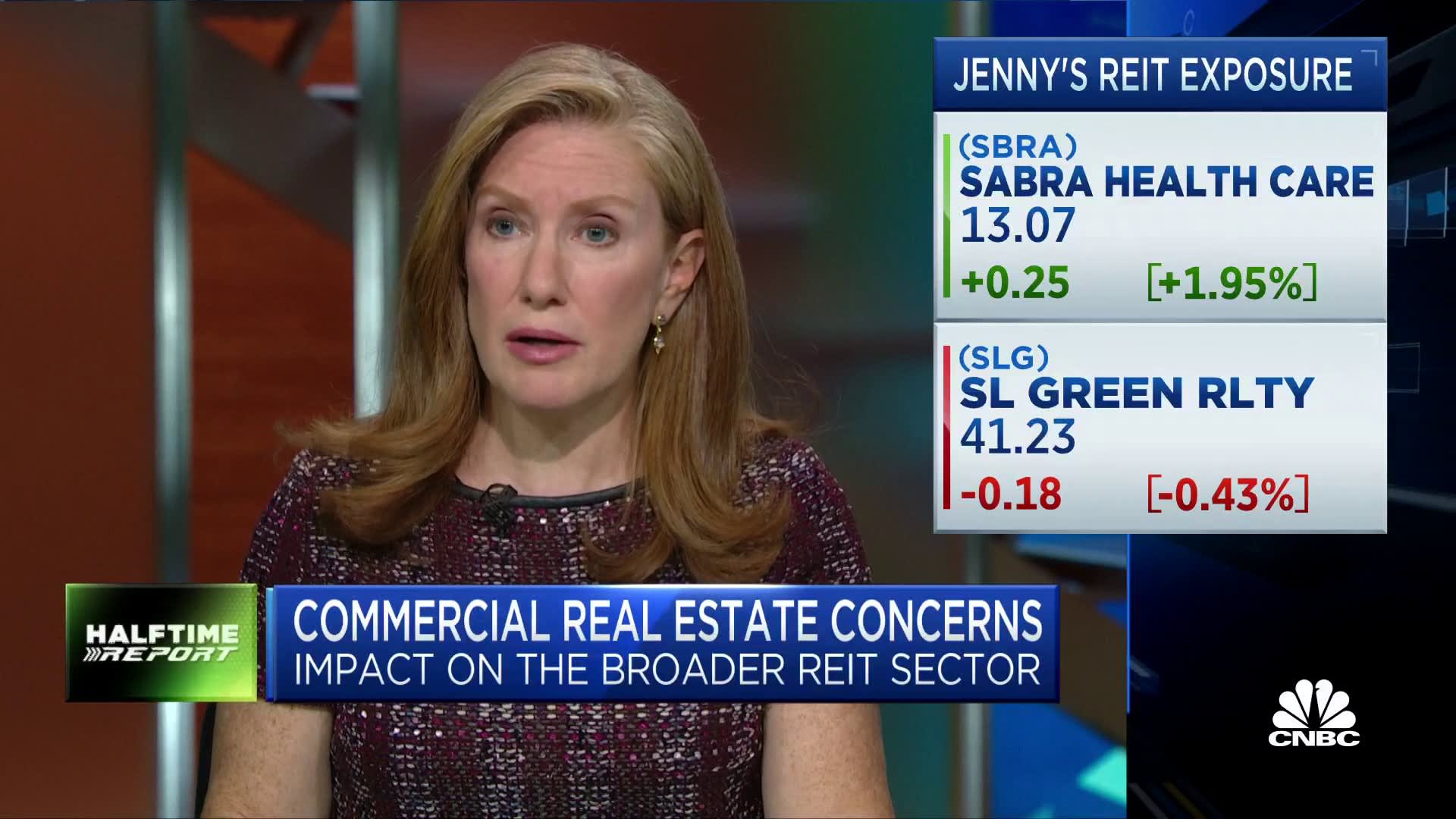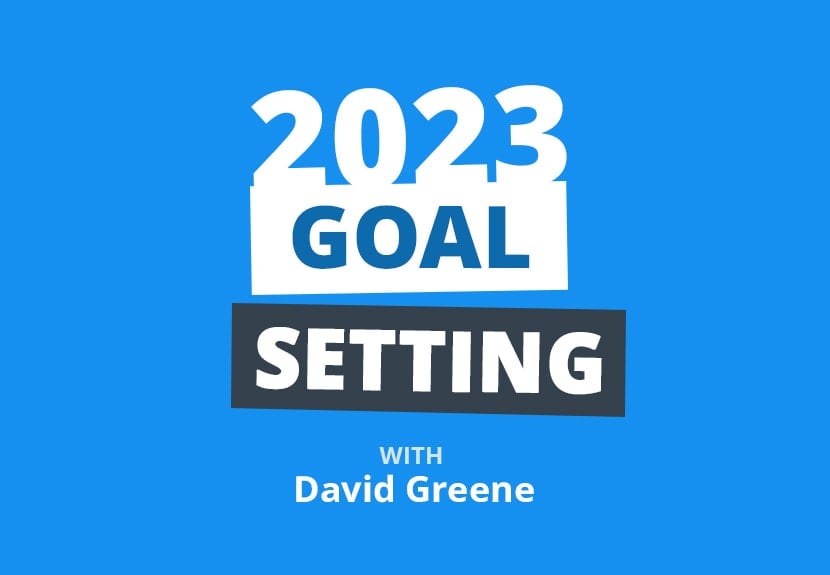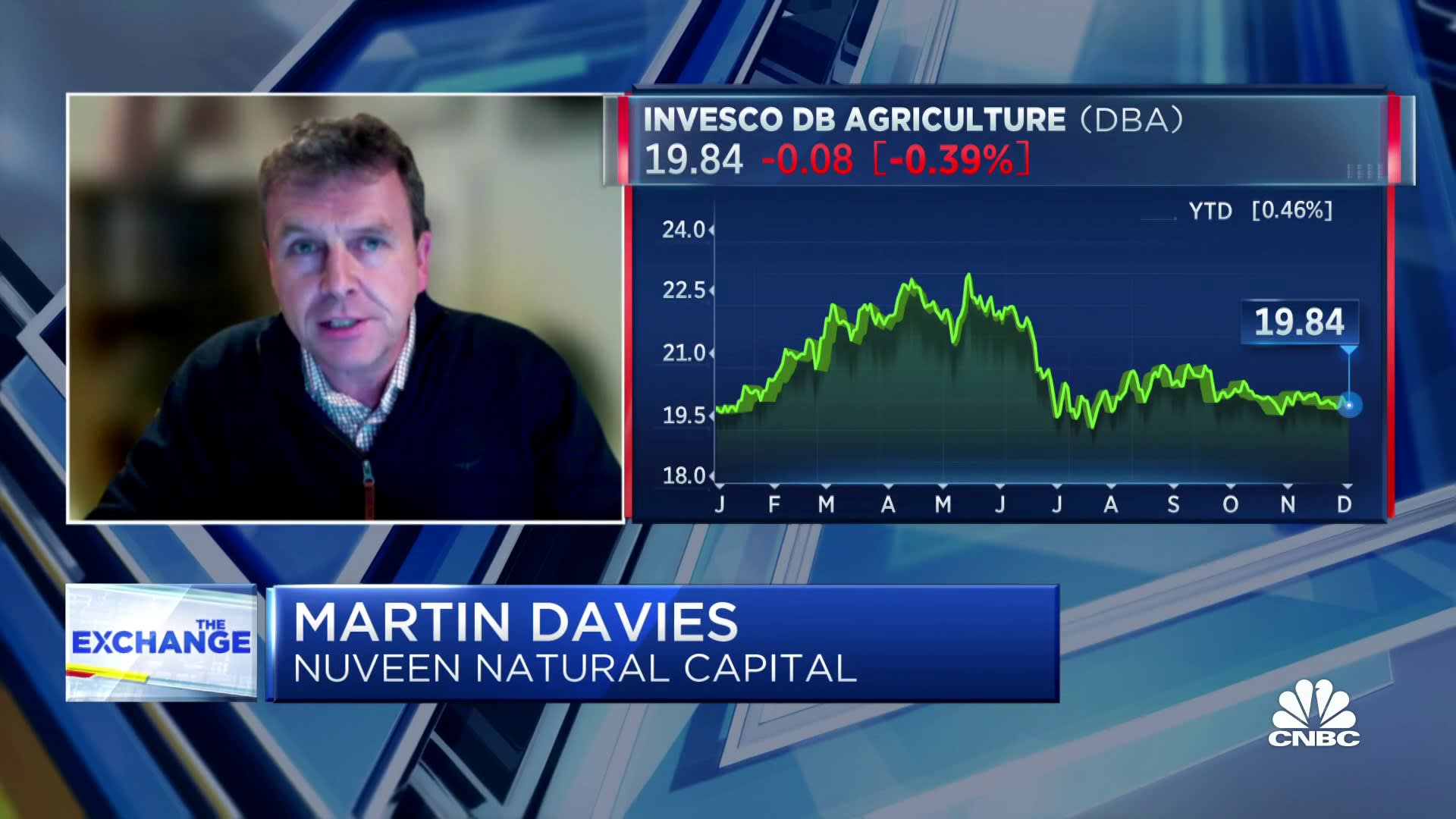David:
This is the BiggerPockets podcast show 696. That’s not talked about often, but it’s important to note picking your goals is sometimes even harder than hitting them. I remember the first time that I… when I was new in Go Button, the first time I heard someone say, “Well, what do you want your life to look like?”
It’s like, well, better than it is now. What does that look like to you? And it was hard. I don’t know. I don’t know what I want my life to look like. I just know I don’t want to work 20-hour shift as a cop, and I’m always tired and cranky and miserable.
I don’t want to have to do that. I was very good at saying what I didn’t want. It’s more important to come up with what you do want. What’s going on everyone? This is David Green, your host of the BiggerPockets for real estate podcast. Here today with my co-host, Rob Abasolo with a special episode for you.
Today, Rob and I pull back the curtain and show you how the sausage is made. In today’s show, we are going to get into our goals. Rob and I review both our 2022 goals as well as our 2023 goals. We share how we did in 2022 and what our goals are for 2023. But more importantly, we show you how you can prepare your own goals. Now, setting goals sounds simple, and it probably is simple but it’s not easy.
If you’ve ever tried to do this, it’s much more difficult than you might think. And we do our best to give you some very practical advice based on our own experience for how we fight through the fog of not being sure what goals we want, as well as some tactical advice for how you can follow the steps that we take to set your own goals. Rob, first off, welcome. And second, hello. What do you think about today’s show?
Rob:
It’s good. It’s a really good deep dive just on how different we are, but in a really cool way. I think you’re a very astute businessman and I am a creative that doesn’t know what I’m doing and I’m figuring it out along the way. But we both have fun crushing it, and it’s really cool to see, honestly, just hearing you talk about your goals.
I’m like, man, that’s very inspirational. A, that you’re that organized, but B, that you did it all. I’m like, good. I need to do that. I’m in. So, I would definitely recommend for everyone watching at home, listen all the way through, definitely get to David’s part. At the very least, fast forward to David’s part because it’s really cool to see David in his element.
David:
I don’t think you’re giving yourself enough credit. Basically, if we were musicians, I would sit down with a pen and paper and write out my entire verse, and you would be like, “I’m freestyle and just give me a beat.” And you would just spit something incredibly amazing that’s bigger and better than anybody thought.
So, I guess the point here is it doesn’t matter how you think, it just matters that you set goals down and different people are going to do it differently. If we want to help you guys make sure that 2023 is the best year you can possibly have. On that note is today’s quick tip.
My advice here is to make goals, but give grace for yourself. It’s okay if your goal is pivot. It’s okay if your goals pivot. It’s okay if they change. It’s okay if you start on one path and then you switch a little bit and you make a different direction. Also, not every goal has to be the same.
Rob brings up some fantastic insight where he shares he has small, medium, and large goals. We have big vision type goals that are large. We have medium size goals, and then you have small goals, like what’s your most important next step? What can you do right now to start building momentum in the direction that you want your life to go?
There is a systematic approach to this that does make sense and will help improve your life if you use it. We’re happy to bring that with you today. Rob, before we get started, anything you’d like to leave our audience with?
Rob:
Nope. No, I don’t know. You always do this to me. I was like, “Well, maybe I’ll riff for a second.” But no, I’m excited for them to hear the chaotic organized mess that is you and I.
David:
The freestyle rapper didn’t want to riff. Okay, fine. Let’s get into the show. Welcome everybody to our goal setting episode. If you’ve been following this podcast on episode 552, we sat down and we talked about the goals that we wanted for 2022.
Well, in today’s episode, we are going to cover how well we did with hitting those goals, what challenges we faced, how we pivoted, and then what our goals are going to be for 2023. Now, the goal of this episode, you see what I did there, Rob?
Rob:
I did see that. I’m picking up what you’re putting down, David.
David:
You’re getting better and better with these quips, the quippy quaff.
Rob:
Hey, I’m smelling what you’re stepping in.
David:
There you go. The goal of today’s episode is to help you prepare 420-23, because you don’t want to wait until January 1st when you’re drunk at a New Year’s Eve party trying to figure out, oh, shoot, what is my New Year’s resolution going to be?
I suppose this is happening on December 31st for all of those detail-oriented people, the detailed Debbie’s, but you know what I mean? You want to get ahead of this now and start preparing for 2023 so you could set yourself up to achieve those goals, because success does not just happen.
It doesn’t happen by chance. It happens by choice. You got to make a choice to change some things in order to hit the goals that you want. So, for those of you that talk about it, well, don’t worry about this episode. But for those of you that want to be about it, you definitely want to follow along with what we’re talking about. Rob, overall, how did your 2022, how’s it been going?
Rob:
Honestly, it has been a scramble in the best way possible.
David:
So, this is an omelet that came out wonderful? Like a great scramble?
Rob:
Yeah. It’s like, oh, my gosh. The vegetables that I chose, I didn’t know if it was going to work. I didn’t know that the carrots were going to be a good addition to the omelet. This is true. I actually do carrots in my omelet, fun fact. I didn’t know.
And then, at the end of it, I took a bite of said omelet. I dipped it into some ketchup. No, I’m just kidding. That’s a bad call, don’t do that. But I ate omelet, I was like, this worked out. This worked out. That’s an interesting analogy right there.
David:
So, why don’t we start with you. I will ask you about what goals you set. You can let me know what they were and then we’ll dive into how they worked out. Sound good?
Rob:
Sure. Let’s do it.
David:
So, give me a list of what your goals were for 2022.
Rob:
So, I wanted to double my portfolio and I wanted to exponentially increase the amount of subscribers I got on YouTube. I think it was more so just my platform in general. And then, I wanted to start a couple of companies, and then I wanted to double my income.
David:
Okay, good. So, let’s start with your first goal. Did you double your portfolio?
Rob:
I more than doubled it. I went from the 15 Airbnbs and we bought a motel and then a few other Airbnbs as well. And then, you and I bought the luxury property in Scottsdale. So, I mean, all in all, I’d say I probably walked away from 2022 with, I want to say 25 new properties, 25 new doors, I suppose.
David:
Now, I forgot to ask you this before we got into hitting your goals. How did you come up with what these goals were going to be? How did you plan this?
Rob:
This is more complicated than… I wish I could just be like, “Oh, I’d sat down and I wrote it on a piece of paper.” And for me, my whole life, my goals have been set around monetization of myself, like how much money I was making, and I crushed that in 202 and then in 2022 as well.
And that started to understand that monetization and money coming in is obviously a great thing and I hit the goal, but it was very unfulfilling. But what’s more fulfilling for me is, I don’t know, coming up with big goals that I can hit, I suppose.
And I don’t know, challenging myself and getting to be more creative and out of the box. And so, I think moving forward now, even as I start to format what I want for 2023, all of my goals aren’t really monetary goals at all, they’re all just like, all right, what’s cool crazy stuff I can do that’s going to make me happy?
David:
Yeah, that’s not talked about often, but it’s important to note picking your goals is sometimes even harder than hitting them. I remember the first time that I… when I was new in GoBundance, the first time I heard someone say, “Well, what do you want your life to look like?”
It’s like, well, better than it is now. What does that look like to you? And it was hard. I don’t know. I don’t know what I want my life to look like. I just know I don’t want to work 20-hour shifts as a cop, and I’m always tired and cranky and miserable.
I don’t want to have to do that. And I was very good at saying what I didn’t want. It’s more important to come up with what you do want. And this shows up in many aspects of my life. I see it in business where I’ll say to somebody, “Hey, I want us to be able to do this business for the one brokerage.”
And they’ll come back and say, “Here’s all the reasons it won’t work. Here’s all the reasons we can’t.” I’m like, okay, what would have to change so that it would? And then, you see them hit that wall, like I don’t know, I don’t think what would have to change so that could, I just know that it can’t.
And you’ve really… it’s a skill of training your brain to see the way to achieve something as opposed to what is easy to achieve. And coming up with my goals was very difficult. Was it a similar experience for you?
Rob:
Oh, my God, it’s so hard. It’s very difficult for me. David, if I’m being very honest with you, I don’t… it’s really hard for me to set goals because I’ve hit them all. I say this as humbly as possible. But all of the things that I’ve set out to do, I’ve done.
And so, it’s very perplexing to do that when you’re so focused on the one thing and then you do it. And then, if you’re focused on several things and you actually are able to accomplish your dreams one at a time, then I’ve been like this whole year for me, it’s like now what? I don’t know. I don’t know, like I’ve done it.
So, that’s why I’ve really been challenging myself to put into play some medium goals and then some very lofty goals. Because now, I need something really big to work toward, and so we’ll get into that here in a second.
But I think it’s like you really have to categorize the small, medium big goals and really think of your small goals as things as you can hit maybe every week or every month. Your medium goals are something that you can hit every year. And then, your big goals are your five-year plan. Does that make sense?
David:
Oh, totally. You remind me of that meme where the guy goes to talk to the girl and he asks her out and she says yes. And she says, “What do you want to do?” And he says, “I don’t know. I didn’t think I’d get this far.”
Rob:
Yeah, that’s me.
David:
Sometimes, you’re just in that position in life. I think we all are where we know what we don’t want, but we’re not exactly sure what we do. And it actually takes some effort and some discipline and some trial and error if we’re being honest about, figure out what do you want your life to look like? It’s very easy.
In fact, most of the time if I ask that question, if someone else just like it was asked of me, they don’t tell me what they want. I get a list of what I don’t want, but that doesn’t always help you. You got to figure out what you’re trying to get to, which is the short-term goals are typically escape my pain.
How do I get out of this situation? That will typically, for me, be I need to hire a person to do this part of the job because I don’t want to do that. But what do I want the company to look like? What do I want my schedule every day to look like?
There’s certain entrepreneurs that have hit this level where they’re very, very detailed about exactly how they want their life to look and you only get there through setting goals.
Rob:
That’s funny that you say that. For you, one of your small goals is how do I get out of this now and who can I hire? Because for me, my big goals are who can I hire? Because it’s so hard for me to relinquish control creatively, especially to other people. And so, it’s a big thing to work up towards, even though the way you frame it is, it’s actually something that should be a small goal that gets me out of this.
So, I’m actually starting to flip flop now. To be that way, I’m making a couple of hires now. And that to me, every time I make a hire, the stress of the financial aspect of it goes away the moment I hire them. Because I’m like, “Oh, I don’t want to spend the money.” And then, I hire them and I’m like, “Oh, my goodness, what have I been doing?”
David:
And hopefully, your revelation in that area is the same thing that our listeners get. That’s why we’re making this episode. Because you don’t realize how bad things are until you actually slow down and listen. One of the pieces of advice I’d give is people are trying to figure out their goals and they have a hard time, is start with what’s causing you pain, that is your don’t want.
I don’t want to work 20 hours a day. Why are you working 20 hours a day? Because I’m doing A, B, C, D, E, and F. I want to keep A, B, C, and F. I’m okay to let go of D and E, but I need to hire someone to do it. Now, we’ve got to want. My want is to hire someone and we can work backwards from there with actually coming out with a strategy and actions you can take to hire somebody. Would you agree that’s a pretty good overall approach to get started?
Rob:
Oh, yeah, definitely.
David:
So, this is where we’re going to start where what’s causing you pain? And instead of just being a baby that cries and says, “It hurts. I don’t like it. I don’t want this.” Turn your don’t want into a want. And then, you have a plan that you can take which will have individual steps that will start.
And then, it’s okay if your goals pivot, they do all the time. I’ll set out with my goals for 2023. And then, by June, May, July, I’m like, “Ah, I don’t really care about that anymore.” I have this opportunity. It’s okay to take something out and add something else in. Did that happen to you in 2022?
Rob:
Yeah. So, I am not the most detailed oriented and organized person. And so, I’m a very free flowing, I don’t know, visionary, creative guy. And so, I think my biggest problem that I’ve been overcoming as of recently is actually just writing down things. I have all these thoughts floating in the ether, and so I didn’t really know what I was working towards.
I have all these things like, “Oh, I’ll get to that. Oh, I’ll get to this. Oh, I’ll get to that.” And yesterday, I just told myself, I was like, “You know what? I’m going to go get sushi. I’m going to go to sushi bar, I’m going to take my remarkable tablet right here and I’m just going to write down everything that I have on the back burner and actually write, I don’t know, a tangible action step for each one.
And as I started to do that, a lot of the things that I wrote down seemed silly when comparing them to some of the bigger visions that I have. So, there was definitely a lot of reorganizing and restructuring of what I really want. And going back to the hiring thing, I’ve realized that they all require me. And because I’m so bad at hiring people until I get over that thing, I can’t really move forward with any of these goals.
David:
This is why I say all the time that the enemy of business success is typically personal growth. The I’m bad at hiring. I don’t know anyone that isn’t bad at hiring to be fair. And the only way we get out of this pain is we have to prove as a person, which is why personal growth always pops up in podcasts like this and we often call it mindset but it’s the same issue.
So, that’s amazing advice. The therapeutic energy of taking what’s in your head, trying to convert at a motion of feeling, a frustration, a hope into a word, putting it on a document and then letting it grow in detail from there. Is that typically how it works out for you?
Rob:
For sure. And then, honestly, just writing it down that, some of these things I was like, oh, my God, this is so easy. All I have to do is this one thing and then the project moves forward. For example, it’s a long story, but I was building that tiny house village in Tennessee.
A lot of other projects took priority over that one. We’re permitting a 60-unit glamping resort in Arizona right now, and so we took our focus off of it. But there was just one snag with the septic tank issue permit, the environmental permit in our Tennessee property.
All I had to do was make a phone call. And so, literally, I made a phone call today to the contractor that it might be running that build. I think he’s going to… and he is like, “Oh, I’ll just go down to the city today and I’ll talk to him about it.” And guess what, he did it.
And then, we got off the phone with him today and my business partner Clint was like, “Bro, is this happening? Was it really that easy?” And I was like, “Yes.” We hit pause on this project for almost a year because of a septic tank permit that could have been solved with a visit to the office.
David:
My soul is screaming inside because you’re so right. I don’t know how important it is for people to understand this. We have a short-term rental that we’ve been waiting four months, four months of me making payments and getting nowhere. As someone on my team was like, we have to go through this process.
We have to hire an architect. They have to draw this out. We have to submit the plan of the city. We have to wait for the city to get back to us. It took forever to get the architect to draw it up that I had to pay an architect to do this. And I’m just going by with the team member telling you needs to happen.
All right. Long story short, I have one phone call with the contractor. They go, “Oh no, you don’t actually have to do that.” We could just start the thing. I don’t even think we need permits for some of this stuff. And if we do, they’ll just come and tell us we need permits. And I was like, “You’re kidding me.”
You’re telling me that four months have gone by and they didn’t need to. And he says, “Yeah, I thought that’s what you wanted. Why’d you think that?” Well, your team member asked me “What should we do?” And I said, “Hey, we should do this.” And no one asked the question of do we need to.
So, many of your struggles are not as big as you think. It’s a phone call, it’s a person. It’s a tiny little thing that if you put in place and writing down what your struggles are, brings clarity to what could be done. So, remember Rob, to ask me when it comes to writing a book, with that process is like for me because it’s very similar to what you just described for your goals.
Rob:
Dude, genuinely, there is a project right now that I’m trying to get off the ground, like a development project. There’s actually two things in Joshua Tree. One of them, I just have to fill out a spreadsheet, but I have not done that because it would take about an hour to tabulate and I’m just freak out about giving out that hour.
And then, the other thing is we have one small permitting thing, I just have to call the city of San Bernardino and tell them, and then I have to wait on the phone for 30 minutes and then talk to them for 30 and I don’t want to do it. And if I just did it, then this project would be built a month faster.
Same thing with all of our Scottsdale expenses. By the way, I am making progress on that but that’s a long-
David:
Don’t worry about that.
Rob:
Yeah, that is a long spreadsheet that I’m just like, “Oh, gives me anxiety just thinking about adding everything up.” I know that there are calculators and everything. So, when you write it down though, it really is like, okay, tally up Scottsdale expenses. What’s the to-do here? Add up expenses.And then, when I look at that, I’m like, “I’m so dumb. I could really just figure this out in an hour.”
David:
Or, if you had a team member that was capable that you could say, “Hey, do this for me, it would get done.” But then, it comes back down to finding the right people. Finding somebody you have confidence in.
Rob:
Yeah. So, that feeds into one of the other… I guess, one of the goals that I didn’t mention, David, was to actually hire people, so I did make progress on this front. One of the big things for me is I just wanted to make my life easier and something felt wrong. I was just like, “Why am I so spread thin? Why is everything very difficult for me?”
And actually, I went to get coffee at six in the morning, which I’ve literally never done before, but it was the only time my schedule would sync with Brian Dovala. We had him on the show a couple months ago and he was just like, “You need to hire a CO.
He’s like, “I think this is time for you.” And then, I was like, “Yeah. I was like, it’s expensive.” He’s like, “Yeah.” But if you look at the monetary aspect of it today, you’re missing the monetization of it one year from now basically. And so, we got up from coffee and he is like, “I think this was a seven-figure conversation. Let me know in a year.”
And then, I was like, “Okay.” And so, I set out and I hired a COO. And I mean, again, it was expensive. But as soon as I did it, there was that relief of like, “Oh, I don’t have to worry about logistics anymore. And you know what?
David:
So, you’re happy with the hire then?
Rob:
Oh my god, so happy. It’s great.
David:
That’s a big piece of it, is being good, happy with the person that you hired. So, that’s a major milestone that you hit was-
Rob:
Big one. Big, big, big
David:
… hire a COO. You also bought… perhaps the biggest, What you also bought way more property than you were planning on. How did that work come out to be?
Rob:
It turned out to be good. And this is a bittersweet. I’m always grateful for the expansion of my portfolio. Good and bad. Good in that I did it, bad in that. I was just like, okay, I could have done more, I think, now in retrospect. And so, it really gives way for what 2023 is going to be. I doubled the portfolio this year. I would like to probably, if I can, triple it, maybe quadruple it in the next… in 2023.
David:
Is that going to be one of your goals?
Rob:
Yes. So, I will say it basically showed me that I was capable of a lot more than I thought I underestimated myself. And then, when I did it, I was like, “Oh, okay, actually, that wasn’t that bad.” And now, I’m here and I’m like, “Oh, I wish I would’ve done more.”
David:
It comes down to that saying that Brandon used to quote that it’s attributed to Abraham Lincoln that if I have six hours to cut down a tree, I’d spend the first five sharpening my X. Your goal seems incredibly difficult to accomplish until you put them on paper and then say, “Okay, if I want to do X, I need to take these steps to get to X.”
And then, you get four steps of Y and then you’re like, “Oh, that’s actually an hour for each step or a day for each step and I could be at X.” which would be huge and it would allow me to double whatever I’m doing. That’s why we’re having this episode. It’s often much loftier in your mind than what it would be if you got down to doing it.
Rob:
And I guess to wrap up that analogy, I think my axe was a lot sharper than I thought. And we spend too much time sharpening, and that analysis paralysis where I was there consistently everyday sharpening that axe. And then, came game time, I was like, and I was like, “Oh, dang it.”
David:
That tree came down way faster than you thought. You’re like, “Oh, I could have chopped down a bigger tree.
Rob:
And now, I was out of time to go and do it again. I mean, we’re still closing a couple of deals by the end of the year. But at the end of the day, I was just like, “Dang it.” Like, oh, I could swung faster, I guess.
David:
And I’m confident this applies to more. I don’t hear this and think, well, of course David and Rob have a sharp axe but I don’t know how to invest in real estate. Yeah, you do. You can go house hack if you want. You can go buy a primary residence with 3.5% down and just spend your time working with an agent to find one that has two ADUs or a duplex that has an ADU in the backyard.
Or you could even go look to buy an RV and put it in the backyard and rent that out to somebody else out. There’s a lot of small steps that could be taken on this journey. And you take them and you get there quicker than you think. And you’re three months into the year, you’re like, “Okay, I already bought the house, now what do I do?”
You got nine months left to figure out how to expand. When it’s written down, it’s much more simple than when it’s all in your head and it feels intimidating and confusing.
Rob:
Yes, 100%.
David:
So, part of your challenge was like, how do I come up with my goals? You wrestled with that. Part of your challenge was finding a COO, and that sounds like that relieved a lot. What other challenges did you encounter in your 2022 goals?
Rob:
So, this one is the current challenge right now. And I have figured out that I want to triple, maybe even quadruple my portfolio in 2023, after writing it out, thinking this through, ruminating on it for the last couple months. Now, I know that that is my goal.
And so, instead of slowly pacing myself towards it now and sprinting. So, actually, I said I wanted to start a couple of companies. One of those companies is going to be raw built capital, which is going to be my fundraising arm. Remember when I said I wanted to put a really lofty goal out there?
My lofty goal is I want to raise a hundred million bucks in the next five years, that’s my target. 20 million a year seems really achievable. I think it gets… every year will probably be more and more and more. But for now, that’s what I tell myself every day, a hundred million in the next five years.
And I want to continue scaling up my property or my property portfolio. So, what I’ve of encountered was my big hurdle was I had a guy that he’s really great, quoted me on how to structure the fund and how to do everything that came out to $20,000 or something.
Honestly, nominal for the work that he’s going to do. But it just held me up for too long because it’s not that I didn’t have it, but I was just like, “Oh, I don’t have the mental capacity to spend $20,000 on men, $20,000 on lawyers and I don’t want to think about it right now. But after writing it out and thinking that, I’m like, “Okay, that’s what I decided.”
Literally, after I went to sushi, I emailed them, I’m like, “I’m ready to go. Let’s build this fund out.” And so, we are going to be meeting here in the next week or two and putting together all the architecture to officially launch in 2023, which will also come with staffing up and building that team as well. But I’ve already got a lot of those people in place.
David:
Very lofty. What makes a goal that size feel achievable to you?
Rob:
No, that’s not… see, that’s the thing is I’m actually trying to create goals that feel impossible because, which I don’t know. It’s like I want it to feel like I can’t ever get there so that I have something to work towards. Because all these other goals that I set felt impossible and then I hit them all and I was like, “Well, shoot, I don’t think I was thinking impossible enough.”
So, I’m really trying to put a crazy number out there, a scary number so that it gives me, David, at least a year or two to get to a runway to, hopefully, I don’t hit it faster than I think. But I genuinely, I’m like, okay, that’s scary enough to where I think it buys me time to figure out other goals that I might want.
David:
So, one of the ways that we approach making progress on a goal is acronym that Brandy came up with called MINS, which stands for most important next step. So, when it comes to, I’ll let you pick a goal, tell me what is your most important next step for whichever goal you want to use as an example.
Rob:
I want to get 50 units in the next three months.
David:
So, what would be your most important next step towards that goal?
Rob:
Honestly, ask my audience to send me deals.
David:
And it can be that simple. That’s exactly right. And then, do you have a person on your team that sort analyzes those deals and brings the best juiciest ones to you?
Rob:
Yeah, I do. So, typically, and this happens on a smaller scale, I just haven’t asked for it on this larger scale. But they’ll send me a deal usually on Instagram or via email or via BiggerPockets. And then, I send that over to my COO, Clint, and then he’ll go and run the numbers and then he’ll go and talk with the investors and talk through all the financials.
David:
And if you didn’t have a Clint, your most important next step would be find a Clint?
Rob:
Find a Clint. Yeah, that’s right.
David:
There you go.
Rob:
And you know what, even Clint’s starting to get pretty spread thin because the operation is booming right now. So, it’s like now we’re working for towards not just a COO, but an analysis under that to help us underwrite these a lot faster.
David:
To take that off at Clint’s plate, right?
Rob:
Exactly.
David:
There we go. Anything else you’d like to share about your goals for 2023?
Rob:
Let’s see, I have put into place two hires that I needed. This was actually going to be 2023, but after writing it out, I was just like, “Nope, it’s time.” So, I interviewed someone and I hired someone last week to be my content writer. And basically, we’re going to copyright together a lot of the material on my different platforms and everything.
And then, I haven’t announced it yet, but I’m hiring a social media manager too to help me manage, spoiler alert, my social media. And by doing those two things, I will now get infinitely more time towards which will go into next year’s goal of 2023 of doubling my platform.
David:
Wow, man, that is pretty impressive. This is my first-time hearing about this, Rob. I got to say, you seem unstoppable right now.
Rob:
Oh, don’t fall for the calm, Rob. You see here, he’s getting crushed inside. No, I’m just kidding. No, it feels good. It feels good to have been in this situation for the last year in a good way where I’m like, okay, I’m figuring things out. What do I need? What do I want?
And then, now that I’ve figured it out, I’m like, “Oh, man, this feels good.” The outlook is so cool now. Because now I’m like, I can stop worrying about the day-to-day frustrations and start focusing on the tomorrow, not just the day to day. But hey, these people can help run my companies. And then, now I can start leading from a much larger standpoint. So, I don’t mean to get too lofty here, but I’m just like, I feel good.
David:
You should. You deserve to, man. That’s awesome. And I like that you’re just highlighting that the majority of the work is figuring out the vision. Where do I want to go? What do I want this to look like? When you have that, the rest of it falls into place if you take the action.
But if you don’t have a vision, you’re just going to feel like you’re always in a foggy headed state where you’re not sure what you should be doing. And often that’s associated with negative emotions like guilt, shame. You want to hide. You don’t want to talk about stuff because you’re not sure what direction you want your life to look like. But once you’ve got it, man, it becomes very simple.
Rob:
I think I figured it out too, by the way, or partially figured it out. Side note here, which is I said, look, money, it’s something that I chased. I’ve made more than I thought I would make and that box is checked. Cool, great. And then, I was like, “Well, shoot, now, I thought that was going to be the end all be all and it wasn’t.”
And so, my big thing for 2022 was like, well, what is it? What is that thing that’s… I’m a relatively happy person. So, I always like to caveat that, don’t listen to this and be like, “Whoa, he’s not happy.” No, no, I am. But I’m like, “Oh, it didn’t come from that, it came from this other stuff.”
And so, I think one of the things I realized is I was chasing doors a lot and obviously that’s a part of building the portfolio, but what really makes me happy, I was trying to trace back my happiest time in the past couple years and it’s when I launched my YouTube channel, I was building tiny homes a lot more.
I was doing more glamping. I was doing a lot more creative stays and I moved away from that because of just the way things went. And so, I just realized, I’m like, well, shoot, if that was what was making me happier, I think I just need to lean into that.
And so, when I’m launching ROBUILT Capital, my goal for that fund is not to be your typical apartments syndication per se. It’s actually meant to be more of a unique stay fund where I’m going to be investing in RV parks and turning them into upscale glamping resorts or taking campgrounds.
And instead of renting out a space for $20 a night, I want to put a really premium $200 tent on there and create a super unique stay, and so that gets me. So, I’m like, oh, I have not been this excited in a long time. So, I’m now going to be just really putting a lot of time and effort into things like treehouses and domes and really cool structures like that for 2023. And now, that I figured it out, I’m like, ugh, it really is a weight lifted off my shoulders.
David:
Awesome man. Well, make sure you lifted off very slowly because we don’t want you hurting your back again.
Rob:
Oh, well, hey, I worked out for the first time on Monday since I threw out my back and it felt good. And then I went back today and I’m like, man, I’m so glad I’m back in the groove. So, honestly, a big tip for a lot of people’s workout, you never really realize the clarity that you’re going to get from working out. Because honestly, at the end of it I was like, oh, feels good.
David:
All right. So, last question here. What about personal goals as opposed to business goals for 2023?
Rob:
Yes, this is a big one. This is a big talking point between my wife and I. I think she’s slowly coming. She’s getting on board with it, but I want to travel more. I want to travel internationally more specifically. And it’s just really tough with kids.
We got a one-and-a-half-year-old and a two-and-a-half-year-old, not good ages for kids on a plane. Every time we go, it’s absolute craziness. And so, pitching her on a 10-hour flight to Copenhagen hasn’t been going over super, super well. But for 2022, I just want to travel. That’s like my big one. I don’t care. It doesn’t have to be across, it can be in Mexico, it can be in Canada.
David:
You and I might be traveling to Mexico in a couple weeks here. I’m trying to put that together now.
Rob:
Yeah, we need a chat about that today. Hey, not on the pod, David. Don’t tell everybody our secrets.
David:
You don’t want them to travel there to find us? You don’t want to get kidnapped in Mexico?
Rob:
Now, I’m excited. That should be cool. But yeah, traveling more is a big one for me. Before my wife and I had kids, we told ourself we were starting to think about it, I was like, “You know what, I’ve never traveled and I think we should go to 10 countries before we have kids.”
And she was like, “Let’s do it.” And so, we did. We traveled to Japan, to Denmark, to Sweden, to the UK. We went to a lot of places in a year’s time and it was really great. And those were some of the happiest times of my life. So, I just want to go back around the world.
David:
All right. That sounds amazing. Thanks for sharing that.
Rob:
For sure. So, let’s turn it around on you here for a second. You just heard my ramblings. Hopefully, some of it made sense. But what were some of your goals for 2022?
David:
Mine are actually much more systemized. So, the way that I typically work out my goals is I take more or less each of the business endeavors I have going on, combine that with my investing, I make a headline for it on a Google document and then I write down these are the goals that I want for each company.
And then, I save that as a tab open on my browser. And a couple times a week, I just check it and see how are we doing as far as marching towards that. And I often will see, oh, I fell behind there. That becomes an email, a text, a conversation with a leader to say, “Hey, we wanted to hire five more agents. What are we doing?”
Oh, I wasn’t thinking about that. I was thinking about this, okay, let’s put this back on the radar. You’re constantly moving to all these spinning plates and trying to spin them and like you said, my biggest struggle is always hiring. There’s so many people in the world that want to be a part of your company or your enterprise because how they see it would benefit them.
There’s not a lot of people that say, I really want to come and contribute to what you’re trying to do. And if I contribute well, I know that I will be financially compensated as well. So, I think this is every business owner’s struggle. I think this is every person’s struggle and it’s not unique to business.
If you’re in the dating world, it’s not hard to find a person who says, “Well, what does this person have to offer me?” There’s not a lot of people that are going around saying, “I want to find a person that I can really serve.”
But that’s what you need. If you need two people that are serving in business and relationships and whatever, if you want to be successful. So, if you’d like, I can just start with each category and go through and read off what the goals are.
Rob:
Wow, we should have started with you first so that people could stay hooked, because everyone’s gone at this point.
David:
No, I don’t have want to make you feel bad by having this very systemized process. And you’re like, “Well, you know what, I’d get a napkin at a restaurant and I wake up at 6:00 AM one time in the year.
Rob:
It’s a remarkable tablet by the way. It’s not a napkin. It feels like a napkin when you write on it, but it’s a pad. It’s a-
David:
I’ve heard of these remarkable. I’m actually thinking about getting that as a gift for a couple people for Christmas this year.
Rob:
It’s a good gift.
David:
So, my first one has to do with vision. This is the stuff that’s very big picture that I know in general I want to move in a direction. And my vision has been the same the last three years. I don’t always have clarity with how I’m going to achieve it, but I know what I want.
The vision I have is to create an ecosystem that everybody who wants to invest in real estate can come to one place that gets everything they need. They need an agent, they need a loan officer, they need insurance, they need a contractor, they need an appraisal, they need education, they need knowledge, whatever. They can come to one of my companies and be connected to all of it.
Now, that sounds very simple. Actually executing, that’s very difficult. So, the first thing I have on my vision now, this is, I guess, these would be 2022 goals that we’re going over. This is what I had for last year. Was I wanted to buy a commercial building that would be a one stop shop model.
So, literally a physical location where my real estate team would have offices, my loan company would have offices, my insurance company would have office, everyone could be there together. And then, I could get everyone together in one auditorium type of a setting where I could teach everybody at one time and then have a marketing system that would work for everyone.
So, maybe some form of salesforce that we could get connecting everyone together, one hiring division that would be filling it up. That’s still what I’m building towards. I did not buy that building.
And part of that is because I’m not sure if I wanted in a physical location because we’re now operating in so many different states and areas, it’s very difficult to get everybody in one place. So, I think I’ll probably have one physical location for leadership. I don’t know if it’s going to be for every employee.
Rob:
Obviously, you started taking steps towards that. Was there a moment where you’re… that where you made that decision where you’re like, “Eh, I’m good. I want to keep it remote.”
David:
It was everything that I looked at. I could see this isn’t going to work. I wanted to buy a church building but they were too expensive in the Bay Area. Then I was looking in Los Angeles and it was the same problem. Then I was like, “Okay, well, we’re going to… let’s move to the south and let’s put a building there.” And then, a lot of the people were, “Ah, I don’t want to move. I like where I am.”
So, there was every single opportunity that came my way, I could see there was something that would stop it from working. So, we’ve just stuck with the remote thing for now. Another vision I have is to have at least two companies that makes six figures a month in profit.
So, right now that’s the one brokerage and the David Greene team. So, working to maintain that, the profit that comes out of those companies is in the six-figure range. Another is to stay in Gary Keller’s top 100, meaning that I’m one of the top 100 agents or teams in Keller Williams.
And then, my last one from Vision is to maintain BiggerPockets as a world’s best real estate podcast. So, as the face of BiggerPockets, it’s very important that nobody catches us, passes us up. Side note, this is why we love a review from you on wherever it is that you listen to your podcast. Because if you stop leaving those and other people are leaving for the podcast, they like, we will get passed up.
Rob:
But let me just click in on that real fast. I will say if you seeing us on the charts, we’re always number three or number four some, I’m sure we’ve been number one several times, that is very dependent on your five-star reviews and it genuinely means a lot to us.
We read those things and we take them to heart. If you have feedback, send us a message on Instagram or on BiggerPockets, we’ll read it. But we would really appreciate the five-star reviews. It genuinely helps us with the podcast algorithms out there getting served up to new audiences.
David:
Thank you for that, Rob. Very important. All right. I will go through each company here and then I’ll pause and let you see what questions you have. So, the first is the David Greene team. Four goals for that. The first is to hit 250 million in gross sales volume, so, the accumulated total of every house we sell needs to be at 250 billion or more.
I would like to maintain four strong, oh, sorry, we’re at 2023 now, four strong sales leaders. So, those are agents on the team that over that get leads handed to them as opposed to just generating their own and they oversee showing assistance to help them with their job.
I would like to add five new agents to the Northern California location. There’s going to be a few more because I switched to 2023 off of 2022. I would like to add two expansion teams, so this would be agents in different markets that we can refer buyers to.
Typically, there’s a margin where I’m buying a lot of houses, so I’m looking to add an agent in the Smokey Mountains as well as one in either Bluebridge, Georgia or South Florida or Scottsdale. Those are all areas that I believe in I’m buying property there, so I’d like to have a David Green team agent that I can refer people to.
I would like to launch the DGT program that’s actually called Launch. So, when we have new agents come join our team, we now have a video library of trainings that helps new agents get started and acclimated to our system.
And then, release the David Greene Team University DGTU coaching program that will help real estate agents to sell more houses. And that will be tied in with the series of books that I wrote for BiggerPockets to help agents with selling homes.
Rob:
So, my first question is, you said that you wanted to reach 250 million in close sales. Why that number? Is that an achievable number? Is that something that’s like are you guys on the cusp of that? Tell me why you chose that number.
David:
It’s the number that with the group we have, if everyone gets maybe 80% of their potential, that’s about where we land.
Rob:
And then, you said that you wanted to… man, so, what I’ve realized that I’ve already learned so much from you, David. Your goals have goals, that’s what it sounds like. You keep clicking in and it’s like, I want to [inaudible 00:39:09] this and I want four sales managers and then I want these markets.
And then, I want these agents in market. So, I guess, with your four sales managers or your four team leaders, are those all going to be in one office or do you want those spread across the country?
David:
So, this is a great question here. And it is true what you just said about my goals. My brain tends to work that way. I see the big picture and then I click in and those enhance the footage. It just keeps zooming in on the individual details and that’s how I come up with these.
I would like those sales leaders to be a strong core in California. And because the idea is once I have a strong core, when I add expansion agents, they have a mentor they can learn from. It’s like you’re trying to build a culture which is very difficult because that depends on people and you got to get people that are bought in.
I can’t accomplish the goal of adding expansion agents if I don’t have a core of agents that are already established in this system that can teach the new people, like you can’t draft rookies if you don’t have veterans for them to learn from.
Rob:
And so far, are you tracking with… have you been hitting a lot of those goals for 2022? Or, because I know those were a blend. But where did you net out for 2022?
David:
2022, I landed right around where my goals were. So, the goals for 2022 with that company was 250 million in gross sales. I wanted four strong buyers, agents which I have. I wanted to hire a COO, which I did. Kyle was promoted to COO and he’s been doing well.
And I wanted to end with a team leader for the Brentwood location, which is our hub. And Kyle has taken that over and he’s about to promote our first agent to be that. So, all the DGT goals for 2022 were hit.
Rob:
Amazing. Congratulations. That’s awesome dude.
David:
Thank you. And I should also highlight that’s not massive growth mode. I’m more wanting to maintain what I’m doing and have a healthy growth as opposed to blow it up, because you can’t blow everything up at the same time.
You’ve got to let something go if you want to focus on other stuff. So, my method tends to be put all my energy into this thing, get it really big, hire someone to maintain it, move on to the next thing in life that I want to grow.
Rob:
I could take a page out of your book. There’s that phrase that I hear very often, which is you overestimate what you can do in a day, but underestimate what you can do in a year. And that sounds like what you’re talking about, which is you just want steady growth over the year.
You recognize that you can get a lot done, but don’t go too crazy with it. I’m like, oh, yeah, okay, I need to… this is what I’m saying, the small, medium, big goals, which is what your goals of your goals of your goals, that’s what I need to be better at.
So, it’s nice to actually hear your systems because I’m like, all right, if I just write these out even more then jotting them on this remarkable, use my affiliate link by the way. No, I’m just kidding. But yeah, writing them out seems to be your system here works.
So, moving into the real estate side of things, I know we talked about your commercial building, but you also… I have to imagine you had some real estate goals too because you closed on what most people will close on a lifetime you did in a year. So, can you talk about your real estate goals?
David:
Yeah. So, I can skip down to real estate here. So, the totals were the one brokerage marketing goals, book goals, insurance company goals, investment properties, taxes and personal goals. That’s basically what my list is made up of. For real estate itself, 2023 goals are to continue to raise money for multifamily, single family and commercial properties.
Find operators to partner with and buy a minimum of four new properties to add to my portfolio. Now, I will most likely blow that goal out of the water, but that’s a minimum. I’ve got to buy at least four properties.
Rob:
Just for the year of 2023?
David:
For 2023. Now in 2022, my goals for investment properties were to… it was actually very similar. Find operators to partner with, which I’ve been doing with Andrew Kushman. We bought an apartment together in Fort Walton Beach. We’re going to be doing more of that.
People can go to invest with davidgreene.com and they can let me borrow money that I will then pay them a return on as I go invest so I’ll continue to do it. But I wanted to buy a minimum four properties in 2022 and I probably bought more like 16, maybe a little bit more than that.
I bought a whole bunch of them here at the end. So, my numbers aren’t… I have to look at my spreadsheet that tracks those to see where we are. But like you, I blew that one out of the water.
Rob:
So, why don’t we…. I’m just going to redo your goal here because I think if you hit the goal, your next goal has to be bigger. So, I’m going to make you at least, least double your goal for 2023. But if you bought 16 this year, then I think you should set a goal for se 16 and a half, 17 properties for 2023.
David:
Here’s the problem with messing with buying how many properties I want to buy. It’s like Dave Meyer setting a goal for how many sandwiches he wants to eat. That is a tempting thing for me to do anyway. I don’t have to put focus on that goal to hit it. Dave loves sandwiches. He’s going to eat as many as he can. I love buying real estate. It’s really freaking fun.
Rob:
Wait, hold on. Sorry, Dave Meyer, the data deli, Dave Meyer?
David:
Yes, that’s it. That’s where the data deli comes from. Like deli is, he loves sandwiches.
Rob:
Oh, really? Oh, I thought he was just… I thought it came from… he’s like, if you went to a deli, that was all computers and data.
David:
He’s playing on that.
Rob:
Nice. Okay.
David:
[inaudible 00:44:20].
Rob:
Okay, good.
David:
So, that isn’t difficult goal for me to achieve. What I find is I go by 16 properties at one time, and now I have this log jam of trying to do rehabs, talk to contractors, order furniture, find people that can manage them, and then I get screwed up.
So, by focusing on how many properties I buy, I could buy a hundred of them, but everything else would fall apart. I have to intentionally put my focus on business goals because it’s not as fun. But business is what helps me build the reserve so I can go buy 20 properties at one time.
And as I’m waiting for these things to get up and running. I can handle the cost, like I said, of all these properties that are four or five months in and I still am not generating any revenue yet.
Rob:
That makes sense. All right. Okay, cool.
David:
I’ll give you a shortcut. When it comes to investing, here’s the best way to go about it. I talked to my CPA. I say, “It looks like going to make X amount of money this year.” They run some numbers and they say, “You’re going to need to buy X amount of real estate for the depreciation to cover what you bought.” And that’s how I determine my investing goal. Now, that could be four properties, that could be 20.
Rob:
I see. I’m in that same boat. And when I say I want to double or triple my portfolio, this is actually something that you got to me on, which is like, I’m not looking to double or triple it with single family acquisitions anymore. I am looking to just double it with number of doors, but creative doors, like I said, the glamping or RV parks or anything like that, just from a scalability standpoint.
And that is actually a big thing that will be pivotal for me. I just realized when you hammered that in my brain, I was like, okay, the way to scaling is I can’t focus on single family acquisitions anymore. I have to buy them in bulk, if you will. And that has actually informed a big part of my 2023 strategy. So, kudos to you.
David:
That’s why you got to be careful with how you set your goal. Because if you say I want to add a hundred doors, you’ll go buy a hundred bad properties to hit the goal. It’s like I don’t like… with fitness, I don’t believe in setting a goal for how many steps you’re going to take in a day. Because steps is not a great form of exercise. It allows you to check a box and say, “I hit my goal.”
But those people are not going to lose weight because they’re taking steps as opposed to, I’m going to go to the gym and work out really hard for at least 15 minutes, you’ll probably burn way more calories and it will help you. So, sometimes we unintentionally set goals that are not going to help us achieve the life that we want, just to get the feeling of I made progress.
Rob:
So, that’s a good way to put it. So, if I say, let’s say I want to triple, so I’m at 35 doors right now. Tripling would roughly be a hundred or so. I’m not looking to buy a hundred properties. I’m actually looking to buy two or three properties that get me a hundred extra doors.
David:
Or maybe say the total volume of the real estate I own is 15 million, I want to triple that to 45 million. Now, what’s the most efficient, productive, effective real estate I could buy to get to 45 million instead of focusing on the doors, which is a very easy metric to hit.
Rob:
Sure. So more-
David:
So, what you described is exactly right. I’m going to buy three properties, but they need to get me to 45 million
Rob:
Exactly. So, I guess that term would more be like AUM, assets under management.
David:
Something along those lines. Or I want to build X amount of equity, or I want to add this much cash flow to my portfolio, which now forces you to look at the quality of the product, not just the quantity.
Rob:
That’s good. That’s all about framing. So, right now, so, then I guess I want to quintuple my assets under management. Thanks for putting it that way.
David:
Now, here’s what’s cool, because if one of your goals is to pay no taxes and this goal over here, the quintuples it helps you to pay no taxes. Now, you’ve hit two goals with the same action and you’re synergistically increasing your wealth building.
Rob:
Yeah, the goals start compounding. And by the way, if you want to learn more about taxes, we actually did an episode with Matt Bontrager. He is a true book CPA. He’s my CPA. He’s saved me six figures in taxes. That episode is 689. Go check that out. It was, I think, your mind is going to be melted after you listen to it.
David:
Wonderful. The next category I have here is the one brokerage. The goals were to close 600 loans, hire 25 loan officers, hit 250 million in gross volume, hire 10 new processors and get to nationwide service. We achieved all of those except for nationwide service.
We’re about halfway there. And in 2023, we should be licensed in all 50 states. My goals for 2023 with that company are to move our model to a processor pool as opposed to a processor working under an individual loan officer, hit 350 million in gross volume, develop 10 solid realtor referral partners that will send us business and hire 25 more loan officers.
So, if someone’s out there listening and they’re a loan officer and they’re looking for a new broker to hang their license with, I got to hire a minimum of 25 people for that company. And if I hit that goal, all the rest of them will probably be hit as a consequence of that one goal.
Rob:
Very cool. All of that is crazy. You close 600 loans and you hire 25 loan officers. Is that what you said?
David:
No, last year, I already had about 10. I hired 10 more in 2022 and we closed a little bit over 600 or we’re on pace to close a little bit over that.
Rob:
Good for you, man. That’s top tier, man. It sounds like you questioned on all your goals, on all your highly organized, highly systemized goals that now I’m like, oh, shoot.
David:
So, one of the things I’ve learned about when you’re… it’d be easy to say close 2 billion, set a big goal. But here’s what I don’t like about that. I would then go hire a hundred bad loan officers to hit that goal. The customer experience would be terrible.
I wouldn’t be able to manage the hundred people. The company might hit its goal, but the profit would be very low and the reputation would be bad. I look at it like I want to hire five new agents for the David Greene team, why not 50? Because frankly, I don’t think my new COO can handle hiring 50 agents when he is only done the job for six months.
Now, let’s say he does it for two years, two and a half years, he’s probably at a skill level that can handle hiring 50. And that’s when I would make that goal really, really big. And so, it’s not linear growth. You have to time, what are the resources I have and how much time do I need to give this quarterback to develop before I throw them in the game and have really high expectations on them.
So, I don’t want to make it sound like I’m saying set small goals. It’s set goals that you can hit that would cause you to stretch. But those numbers, if we’re still here in three or four or five years, you should be seeing me say, “I want to hire 10 expansion agents. I want to hire 20 expansion.” Each of these companies should get progressively larger goals as we go.
Rob:
I always tell people to scale accordingly. When you’re getting to short-term rentals, for example, don’t go out and buy 15 short term rentals. Well, don’t worry, David, I’m not dogging you. Give me a second. Unless you can handle that, unless you’ve worked your way, unless you’ve earned your rite of passage of real estate.
And like you, you went out and you bought 15 short-term rentals this year because you have a storied pass of being a successful real estate investor, you’ve scaled accordingly. You were able to do that in a way that 99% of people could not do.
David:
And even then, I didn’t do… it hasn’t worked out as well as I’d hoped. So, I had a person in place that was going to help me get these short-term rentals going. They had another job, they were going to quit that job and come work for me. They changed their mind. They didn’t want to.
Now, I’m stuck. I’ve got all these rentals and it’s moving so slow moving them along because I lost the employee that was going to be helping getting them ready. So, if we’re just being transparent, in general, I’m losing about $80,000 a month over real estate that I am waiting to get set up and cash flowing.
If you can afford to lose $80,000 a month, it’s not a terrible idea to buy 15 homes. But it’s definitely not ideal. If I could have, I would’ve gone in there and I would’ve bought two at a time instead of 15 or 16 at a time.
Rob:
But I mean, think about, this works on so many levels though, because if it happened to anyone else, they would’ve thrown in the towel so long, and their mind would be melted. You’re the best in the business. So, at least you can sit down and say, “All right, here’s the fire. I see a fire extinguisher over there. It’s up a mountain.”
“I got to figure out how to get up that mountain.” Or, “I got to hire someone to help me get up that mountain and get that fire extinguisher.” Sorry, my David Greene analogies aren’t quite as good as the David Greene. But all to say, you have also have systems in place.
You have reserves in place. You know how to handle taking an $80,000 loss until they’re all running. And then, all of a sudden, great, guess what? In 10 years, you’re going to look like a genius because you got all these short-term rentals.
David:
And so, you mentioned a couple good points there. Taking the big picture approach when you’re setting your goals is huge. It looks like a loss. It feels like a loss. It’s terrible right now. In 10 years, I won’t even remember this. I’ll be like, “Oh, yeah, I remember back when I did that.” If I listen to this podcast, I won’t know.
Second, by focusing on these other goals I have, the business goals, there’s enough money coming in from other businesses that can float that loss that I’m describing. Then I also have reserves. There’s layers of protection here. And I call this concept portfolio architecture.
It’s easy to look at every individual house as it’s like it’s own thing, but it actually fits within a larger organism. Your portfolio itself is the organism, not the house. So, I try to set things up to where, okay, these are my cash flowing assets that don’t really grow in value very much.
These are my assets that grow in equity very quickly that are supported by cash flowing assets. These are assets that kick off a lot of cash flow that can afford to float at me for the six months while I do this really big rehab and I lose money. But then after the rehab, when I burn, I get all my capital back out.
I didn’t lose anything. And boom, there’s a flesh of capital to go add new assets and new ways. And so, as you stick with real estate and you continue to buy homes, you start to get flexibility. It’s like a football team where our tight end just went out.
Well, we’ll just run a different offense. Our running back is in good shape. Our quarterback’s fine. We can utilize this wide receiver. You’re not like your whole enterprise falls apart because you had one injury to your team. That’s the goal of what we’re trying to get you there.
And house hacking is the best way for people to get started. But it’s not to just look at one individual home, that’s where all your anxiety comes from. Because if you have a bad month, you’re like, “Ah, I’m a bad investor, I should just quit.”
Rob:
Yup, 100%. You got to look at the bird’s eye view level, if you will.
David:
So, thanks for pointing that out. Marketing goals. I’m getting a new website made. So, I have davidgreene24.com, which is better than the old one, but we’re redesigning that again. I would like to develop more engagement through a website we use called Circle that my mastermind members have access to.
So, I want to be engaging with them more through that. I would like my YouTube channel that just hit 10,000 subscribers. So, in this room, I’m the little baby in the room and Rob is the big babysitter that’s crushing me there. So, I just finally hit 10,000.
Rob:
Just let me have one.
David:
You’re definitely got zilla in that realm. And I am the Geico insurance lizard.
Rob:
Wait, you hit 10,000?
David:
I just hit 10,000 like yesterday or something. So, the goal-
Rob:
Congratulations.
David:
Thank you. The goal for ’23 is to get to 25,000. So, I’m definitely, that’s a goal you could help me with or other people by subscribing or just giving me advice about what works for my personality on YouTube. And then, what has been working and I’ll continue to do is weekly YouTube lives.
So, pretty much every Friday night I’m on there for about two hours sharing information about the economy, sharing what I’m investing and answering people’s questions.
Rob:
Well, every person listening to this goes and subscribes to David Greene Real Estate on YouTube, we will quintuple, we will… you will be a much larger star than I. So, everybody, go subscribe to David right now.
David:
So, then if you do that, then you get to come onto the YouTube and ask me whatever questions you want and I’ll help you with your goals and we’ll create this wonderful symbiotic relationship. My goals for 2023 regarding books is just to write one book, which is, I’ve already started it so that should be accomplished in 2023.
And then, to write an eBook. So, that would be a book that I’m thinking about something along the lines of building a financial fortress. Because as we see when the economy changes, which it has very suddenly, the way that you have built your wealth is very important.
When everything’s going great, I built wealth through crypto, I built wealth through NFTs. I built wealth through whatever new cool hack everybody’s talking about, infinite banking or whatever, looks great. The minute that you see things shift, man, how many people lost all of their money because they built a treehouse, they didn’t build a fortress.
So, I’m thinking about writing an eBook that focuses on ways of building wealth that will stand the test of time that maybe take longer to build. But you’ve got Helms deep, the fortress in Lord of the Rings that’s been there for hundreds and hundreds of years and won’t be taken down.
Rob:
Very cool. I need to prick your brain about that because I too am writing, I’m possibly writing a book. I can’t speak too much about it. I can’t speak too much about it, but I need to understand how you do it because-
David:
I can help you with that, writing a book. So, it’s like we’re talking about goal setting books are even easier. So, happy to help you there. The next company is an insurance company that I wanted to start in 2022. We just got licensed two days ago, so we’re probably going to have that thing up and running by 2023.
So, I want to hire a couple insurance agents. I want to buy a couple books of business to get the business started. And I want to incorporate a marketing plan that will include the insurance company with the other businesses I have, that’s my goals for that company.
Rob:
Cool. And so, you’ve laid out the goals. Have you taken… you said it might be launching in 2023, so does that mean that you have actually started taking small goals to get there?
David:
Yeah, so those small goals look like get licensed in the states, we have to be find the… and I don’t know what you call them, maybe just your partner that’s going to get you connected with all the carriers for different insurance. It’s highly regulated, it’s very, it’s like trying to run in sand, trying to get this thing.
Anyone whose insurance understands what I’m talking about. We’re working on branding and names. So, it takes forever just to get the uppity up regulators to say, yes, you could use this name for your insurance company. Once we have the name picked out, we can work on the branding.
Once we have the branding, we can work on the service. When you have the service, you can work on the marketing, you have the marketing, you can work on actually tracking the revenue.
So, that, it’s just a slow process. And that’s why I’m saying once it’s up and running, I’m probably just going to invest some money into buying a book of business so that I can get existing revenue going. I can use that revenue to then hire the new insurance agents I need to help sell. And then, you’ve got a legit company that can actually make progress earning income.
Rob:
Nice, nice. Okay, cool. So, you have that… we have wire framed out an insurance company. We are way more in the beginning stages than that. So, that’s tough, man. That’s cool. I have a lot of respect for you that you’re able to really… you’re so good at business development and that’s such a good skill to have. And that means when you have an idea for a company, you basically know how to attack, launch-
David:
So, actually, a program I’m thinking about putting together in 2023 would be something that would teach people how to start a business. It doesn’t have to be a huge freaking like Fortune 500 company. But you want to start a construction company or a pool cleaning company or a landscaping company or an insurance or a loan, whatever it is.
How you take a skill of doing a thing and convert that into a business that would you hire a couple people, those components. Because I’ve done it enough times now that I’ve started to recognize the patterns and how it works. Very similar to buying real estate long distance, you start to recognize patterns in the pieces that you need, which became that book.
Rob:
And you’re good at it. So, that makes sense. Sign me up.
David:
Thank you for your compliments because I don’t ever feel good. I feel like I suck every single day and it’s very frustrating. So, this is a bit therapeutic for me, Robbie.
Rob:
No, to everyone listening at home, you’re like you’re everyone’s hero and you’re my hero. David.
David:
Thank you for that. I should probably make growing a quaff be one of my goals. It’d be funny if we did that together. Who is it… somebody sent you a picture of us. They molded our basically faces into one, which was awesome. Do you remember who that was? Could we give them a shout out?
Rob:
Yeah, I looked it up. His name is Edward Morden and I’ll try to time it to where when this podcast goes live, I’ll post it on my Instagram and you can repost it. It’s really good.
David:
Good looking out, Edward. That was a very funny picture. All right. My last set of goals are personal goals and those are, I’d like to do quarterly paid speaking engagement. So, I need somebody who has experience booking speakers to speak at different events.
I want to be doing like I’d love it if ideally, I went and spoke somewhere every month, but I don’t have the infrastructure in place to get a person that would book me at those events. I would like to hire an employee for property management, that’s a huge one.
Looking for a full-time person that their job is to work for me and manage my short-term rentals in different states, but having a very hard time. I appreciate, Rob, you sent us over a couple people, just everybody is like, well, I thought we were going to start a business together or I don’t want a full-time job.
I do it on my own. Finding that person who says, “Oh, no, I know how short-term rentals work and I want to make a $100,000 a year. Managing these for somebody else has just been tricky. But I know once I have that person, I can really scale how many short-term rentals I buy.
Rob:
Oh, that’s right man. Host campers. They provide my friend. Well, we’ll get you set up.
David:
If you’re a host camper, let us know if you’re looking for a full-time job. Other personal goals are to work out three times a week to do BJJ, Brazilian Jujitsu twice a week minimum. And to build at least one additional recording studio like this one.
Because what I’d love is to have another place I can stay at during the winter months when California’s cold and not that much fun, that I can travel to somewhere warm without having to record for my laptop. Because like I said, my vision goal is to make continue BiggerPockets being the best real estate podcast in the world. So, you can’t be having subpar performances every time you travel.
Rob:
Well, hey, on that note, BiggerPockets just had… this in October, we had the most downloads ever as a podcast. So, I think we are the best real estate podcast.
David:
But we got to work to maintain that. Once you get a six pack, it doesn’t stay there. You got to keep working. So, if I want to be able to travel and I want the show to be good, I got to invest money in finding a property and building a studio in one of the rooms of that property. So, that’s another one of my personal goals.
Rob:
Sure.
David:
And that’s it.
Rob:
That’s it. We did it. Man, I’m going to pitch to us, hey, can we redo my part? I’m going to go right down everything like David did. But this is, honestly, it’s good because it’s like, I think it shows two different mindsets, or not two different mindsets but two different minds, like we’re very different people but we’re all we’re both going towards the same thing. So, it’s why I always like-
David:
No, I see a world where our paths probably intersect years into the future where your skills and my skills come together and many of our goals will probably align because we have two different approaches, but they’re very complimentary.
You’ve got this big vision that you want to see that isn’t necessarily within the ecosystem of helping clients, but putting conferences together, the programs that you’re running, continuing to grow your followers, you’re much better at that.
I barely hit 10,000 on my YouTube channel. That’s not something I’m good at. I’m definitely, definitely probably is a dumb thing to say, I don’t know why I just did that but I think you know what I mean. When it comes to the details of how you take what the goal is and you break it into manageable actual steps that you can take.
So, I think you and I, I like that… this is one of the reasons I like working with you, Rob, is we have different approaches but the same value system and a complimentary synergy between the two of us. So, that’s another reason why you want to share your goals with other people because you come across other human beings that can help you with them, that you can also help.
Rob:
That’s genuinely… that’s probably going to be a… I wish we had more time to talk about it, but that’s so important, dude. A year ago, I went and spoke at Codie Sanchez’s conference, it was called Uncon and I have probably said this on the podcast.
I was in the green room with all the speakers and they were all millionaires and billionaires and way more successful and smarter than me. And I was just like, oh, my God. And I felt like I leveled up several times just talking to people. And so, you definitely want to find people who are very different, very contrarian to you that are better, smarter, richer, wealthier.
Because you can learn, you can evolve so many times. I feel like just since you and I have met and become friends, I’ve evolved 10 times this year. I’m a completely different person than I was whenever I met you. And it’s just because I’ve really actively worked to surround myself with people that have really cool, interesting ideas and really cool executions of those ideas.
David:
Well, thank you for that, Rob. I appreciate the support there.
Rob:
Well, if people want to find out more about you and all your cool businesses and your insane business development, where can people learn about you?
David:
Please look me up on social media @davidgreene24. I think TikTok, I’m officialdavidgreene. But everywhere else, I’m davidgreene24. And YouTube just came out with handles and I was able to get the davidgreene24 handle before some jerk got it and tried to sell it to me.
So, I’m very happy. I don’t know exactly how they work. I’ll probably have to have Rob walk me through it because I’m an old man who doesn’t know how technology is. But right now, it’s a youtube.com/davidgreenerealestate. But if you look up the YouTube handle, it’s davidgreene24.
Rob:
Awesome man.
David:
Have you looked into the handle thing yet?
Rob:
Yeah, I locked up, robuilt, thankfully.
David:
At a baby. All right. One win for the people that aren’t out there grabbing other people stuff and trying to sell it to us.
Rob:
I know because someone tried to sell me robuilt.com for $18,000 one time and I was like, “No.” And now, I’m like, “Dang it.”
David:
They’re basically terrorists that are just holding your own stuff hostage.
Rob:
They’re technological extortionist.
David:
They steal the keys to your house. They make you buy it from them to get back in.
Rob:
But hey, here’s the good news. I was able to lock up robuilt on YouTube. So, if you want to find me on YouTube, go to robuilt. If you want to find me on Instagram, robuilt. And then, TikTok, you can find me at robbuilto.
David:
But nowhere else, don’t follow robuilto on Instagram with Robert’s pictures because those are fake.
Rob:
That’s true. Yup, they are.
David:
I heard Elon is trying to switch Twitter so that the blue check mark is something you pay like $8 a month and it’s much easier to get. It would be wonderful if every other social media platform adopted that same method and they verified the majority of people that were on there.
I’d even pay like $10,000. I’d pay a lot of money so that people could know you’re actually talking to David, not some rip off of David. So, really crossing my fingers that model changes.
Rob:
Yeah, same. I was like $8 bucks, it’s almost too easy but I think I’m good with it. I’m happy that it’s obtainable now, so.
David:
Maybe they can make a purple check mark that’s more money if they… people’s ego need to be stroked. But the idea is we just don’t want our followers getting taken advantage of by people pretending to be us. All right. Thank you for that, Rob. I appreciated you sharing your goals.
You’ve absolutely crushed the goals you had in the past, so way to go there and thank you for sharing the struggle with the audience. Any last words before we get you out of here?
Rob:
No. I’m really excited for 2023. And you know what, 2022, I still got two months man. I got a lot of goals on my mind that I’m like, I’m going to do this just because I like a good sprint.
David:
Right on, man. Well, thank you very much. We’ll get you out of here. This is David Greene for Rob leveling up faster than a Pokemon Abasolo, so.
Help us reach new listeners on iTunes by leaving us a rating and review! It takes just 30 seconds and instructions can be found here. Thanks! We really appreciate it!
